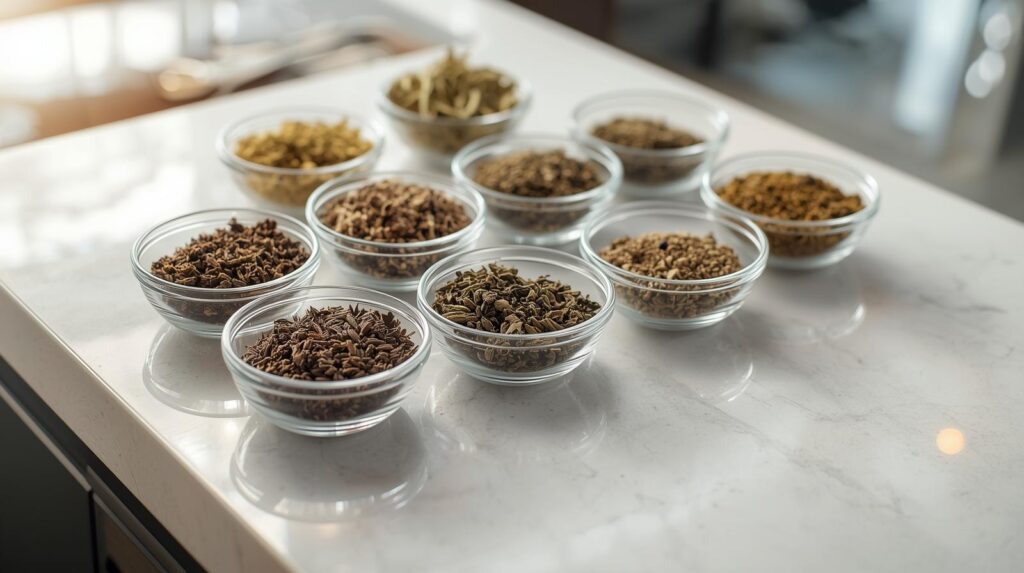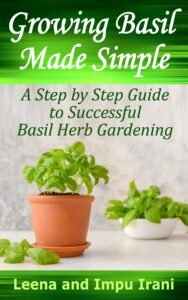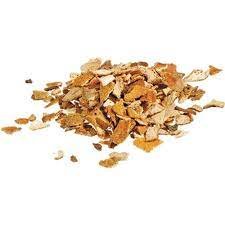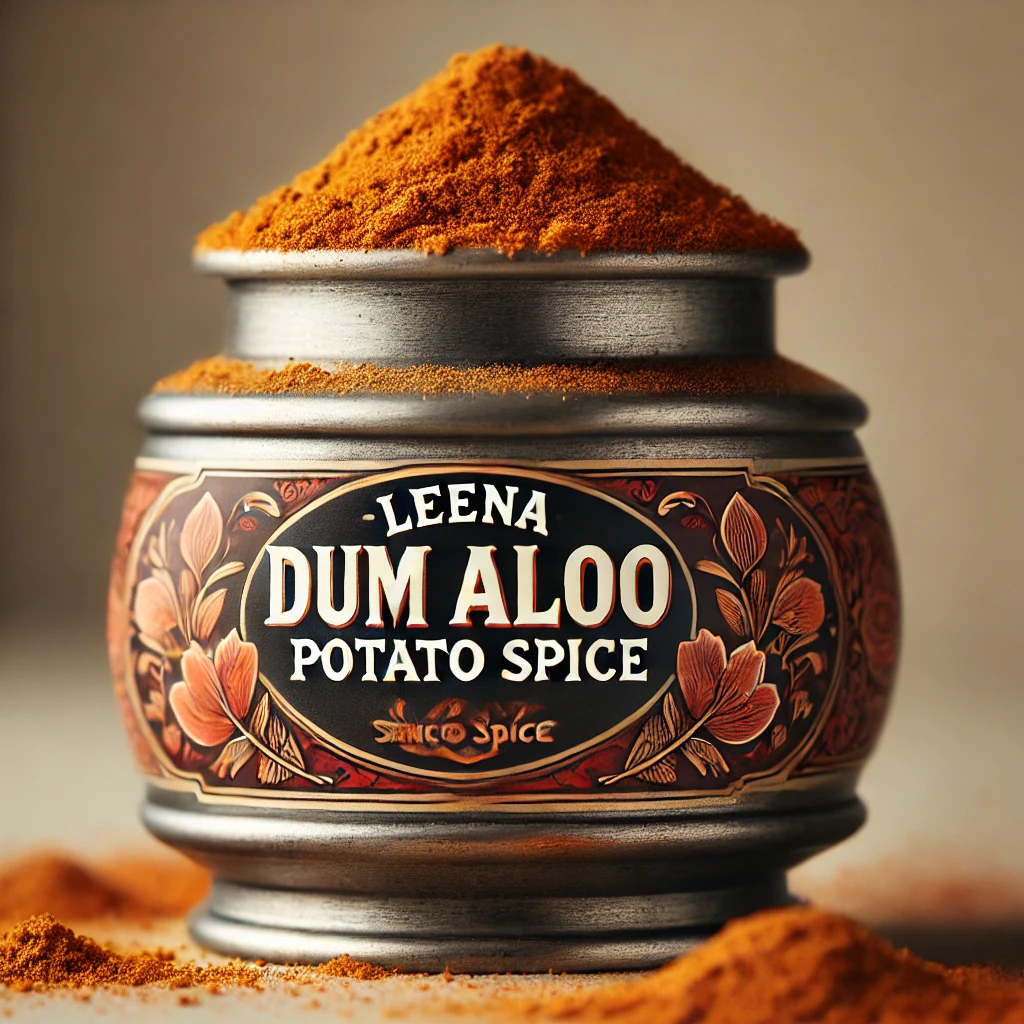Top 8 Herbs for Postpartum Recovery: Natural Lactation & Healing Support for New Moms
Table of Contents
- Introduction: Why Herbs Matter for Postpartum Recovery
- Key Takeaways for New Mothers
- Alfalfa: Nutrient-Dense Support for Energy and Milk Supply
- Ashwagandha (Withania somnifera)
- Blessed Thistle (Cnicus benedictus)
- Calendula: Healing and Soothing for Mother and Baby
- Chamomile: Calming, Relaxing, and Digestive Support
- Dill: Lactation, Digestion, and Uterine Health
- Echinacea: Immune Support During Postpartum
- Elderberry: Antioxidants and Vitality Boost
- FAQs: Everything You Need to Know About Postpartum Herbs
- Conclusion: Nurturing Mother and Baby Naturally
Introduction
Recovering after childbirth can be both physically and emotionally demanding. From hormonal fluctuations and uterine healing to establishing breastfeeding and regaining energy, new mothers need gentle yet effective support. This is where herbs for postpartum recovery and natural lactation support play a vital role.
For centuries, traditional remedies like Chamomile, Fenugreek, Moringa, Shatavari, Nettle, and Raspberry Leaf have been used to help mothers heal, restore energy, and enhance milk supply naturally. These postpartum healing herbs are known to reduce stress, support uterine recovery, improve digestion, boost immunity, and provide essential nutrients that promote overall well-being.
In this blog, we’ll guide you through the most effective herbs for postpartum mothers, explain their unique benefits, share safe ways to use them, and offer practical tips to incorporate these herbal allies into your daily routine. Whether you’re looking to increase breast milk production, soothe postpartum discomfort, or simply rejuvenate your body after childbirth, these herbs can be a natural, nurturing solution to help you thrive during this important phase of motherhood.
Key Takeaways: Postpartum Herbs for Mothers
Why are herbs important after childbirth?
Herbs can support a mother’s recovery by promoting uterine healing, enhancing milk production, reducing inflammation, easing digestive discomfort, and improving emotional well-being during the postpartum period.
Which herbs help boost breast milk supply?
Fenugreek, Goat’s Rue, Moringa, Shatavari, Nettle, and Dill are known galactagogues that may stimulate milk production and support lactation.
Are there herbs that help with uterine recovery and postpartum bleeding?
Yes. Raspberry Leaf, Motherwort, Yarrow, and Dill support uterine toning, reduce bleeding, and ease cramping after childbirth.
Which herbs aid emotional balance and stress relief?
Chamomile, Motherwort, Shatavari, and Dill have calming and adaptogenic properties that help reduce anxiety, mood swings, and stress.
Can herbs help with postpartum digestion and inflammation?
Absolutely. Chamomile, Dill, Moringa, Nettle, and Yarrow help ease bloating, gas, constipation, and inflammation while supporting overall recovery.
Are these herbs safe while breastfeeding?
Most herbs are generally safe in moderation, but consult a healthcare provider before use, especially for nursing mothers or those with allergies, bleeding disorders, or chronic conditions.
How can these herbs be used?
Common methods include teas, tinctures, capsules, powders, or topical applications (e.g., sitz baths or salves), depending on the herb and intended effect.
What is the overall benefit of using postpartum herbs?
They provide nutritional support, hormonal balance, milk production, uterine healing, and emotional comfort, helping mothers recover faster and nurture their newborns effectively.

Safety Considerations
This blog is for general reading. It is important to always consult with your Lead Maternity Carer (LMC), doctor, pharmacist, or a qualified medical herbalist before taking any herbal remedies, especially during the postpartum period and while breastfeeding. They can provide advice specific to your health and your baby’s needs.
Alfalfa (Medicago sativa)
Alfalfa, scientifically known as Medicago sativa, has long been valued for its rich nutrient profile and gentle medicinal properties. For mothers recovering from childbirth, it offers several supportive benefits when used carefully.
- Supports Lactation
Alfalfa contains natural compounds called phytoestrogens, which mimic estrogen in the body. These compounds may encourage the pituitary gland to produce prolactin, the hormone responsible for milk production. As a result, some mothers notice improved milk supply, enhanced breast tissue development, and better milk fat content. - Provides Nutritional Recovery
Postpartum recovery demands extra vitamins and minerals. Alfalfa is particularly rich in:
- Vitamin K – helps reduce postpartum bleeding and supports healthy blood clotting.
- Iron and Calcium – restore energy, support strong bones, and aid tissue repair.
- Vitamins A and C – boost immunity and overall healing.
These nutrients help mothers combat fatigue, replenish iron levels, and accelerate recovery after childbirth.
- Reduces Water Retention
Alfalfa has mild diuretic properties, which can help the body release excess fluid. This may ease postpartum bloating and swelling (edema), supporting comfort during the healing process. - Aids Digestion and Cleansing
Beyond its nutritional value, alfalfa gently supports liver function and digestion. This can be especially helpful as the body transitions and adjusts after delivery. - Supports Energy and Healing
By nourishing the body with essential vitamins, minerals, and plant compounds, alfalfa contributes to tissue repair, steady energy levels, and overall postpartum well-being.
Safety Considerations
Alfalfa is generally safe when consumed in moderate, food-like amounts (such as in sprouts or teas). However, because it is high in vitamin K, excessive intake may interfere with blood clotting—especially for women taking anticoagulant medications. Those with autoimmune conditions should also consult a healthcare provider before using alfalfa regularly.
Ashwagandha (Withania somnifera)
Key Benefits for Postpartum Mothers
- Stress and Anxiety Relief The early weeks after birth can bring elevated stress levels and mood swings. Ashwagandha may help by lowering cortisol, the primary stress hormone. This can encourage calmness, reduce anxiety, and promote emotional stability.
- Energy and Fatigue Recovery Persistent tiredness is common for new mothers. Ashwagandha supports adrenal function, which can restore energy, stamina, and endurance. By improving the body’s stress response, it also helps reduce that constant feeling of exhaustion.
- Hormonal Balance Postpartum hormonal shifts affect mood, energy, and recovery. Ashwagandha is believed to support adrenal and thyroid health, which may contribute to hormonal balance and improved emotional well-being.
- Sleep Quality Rest is one of the biggest challenges for new mothers. Ashwagandha has been linked with improved sleep quality, helping promote deeper, more restorative rest—even if sleep hours are limited.
- Immune Support and Healing With antioxidant and anti-inflammatory properties, Ashwagandha can strengthen immunity, support cellular repair, and reduce postpartum aches and swelling. This contributes to overall recovery and resilience.
- Cognitive Clarity “Mom brain” or postpartum brain fog is a common complaint. By reducing stress and fatigue, Ashwagandha may support mental clarity, focus, and sharper memory.
Traditional Postpartum Use
In Ayurveda, Ashwagandha is often included in postpartum care plans to restore energy, calm the mind, and promote hormonal balance. Its role is not directly in boosting lactation but in indirectly supporting milk supply by reducing stress, which can otherwise interfere with breastfeeding.Safety Considerations
While Ashwagandha has many potential benefits, safety during breastfeeding requires caution:- Limited Scientific Data – There is very little research on its direct effects on breastfeeding mothers or infants.
- Medical Advice – Many healthcare professionals and supplement manufacturers recommend avoiding Ashwagandha while breastfeeding until more studies are available.
- Possible Side Effects – In some cases, it may cause mild digestive upset. It should also be avoided if you are on sedatives or have thyroid conditions unless advised by a doctor.
- Professional Guidance Essential – Always consult with a healthcare provider, midwife, or herbalist before starting Ashwagandha postpartum, especially if breastfeeding or taking medication.
Blessed Thistle (Cnicus benedictus)
Blessed Thistle, scientifically known as Cnicus benedictus, has been used for centuries in traditional herbal medicine. For new mothers, it is especially valued for its role in supporting lactation, digestion, and recovery after childbirth.
Key Benefits for Postpartum Mothers
- Supports Lactation
Blessed Thistle is considered a galactagogue, an herb that helps stimulate milk production. It works by enhancing the release of prolactin, the hormone responsible for milk supply. Many women use it alongside other lactation herbs, such as fenugreek or shatavari, for even greater effectiveness. - Improves Digestive Health
This herb encourages the production of gastric juices and bile, which supports digestion. It may help relieve postpartum bloating, discomfort, and sluggish digestion, common after pregnancy and birth. - Promotes Liver Function
By aiding detoxification and liver health, Blessed Thistle supports the body’s natural cleansing processes, which can be particularly beneficial during postpartum recovery. - Hormonal Balance and Mood Support
Postpartum hormonal fluctuations can impact both mood and physical well-being. Blessed Thistle may assist in balancing hormones, helping mothers feel more emotionally stable during recovery. - Additional Support
- Its anti-inflammatory and antibacterial properties contribute to overall wellness.
- It may help stimulate appetite, ensuring nursing mothers consume enough calories and nutrients to sustain milk production and recovery.
Safety Considerations
Blessed Thistle is generally safe when used in moderation. However, some women may experience mild stomach upset or, rarely, allergic reactions. Because every mother’s postpartum needs are different, it’s best to consult a healthcare provider before use—especially if breastfeeding or taking medication.
Calendula (Calendula officinalis)
Calendula, also known as Calendula officinalis or marigold, is a gentle yet powerful healing herb widely used in postpartum care. Its soothing, anti-inflammatory, and antimicrobial properties make it a natural ally for both mothers and babies during recovery.
Key Benefits for Postpartum Mothers
- Wound and Incision Healing
Calendula is well known for supporting the healing of perineal tears, stitches, and cesarean incisions. It reduces redness, swelling, and risk of infection while promoting tissue repair and minimizing scarring. - Relief for Nipple Soreness
Breastfeeding can cause cracked or irritated nipples. Calendula balms or creams provide soothing relief, reduce pain, and support healing, making nursing more comfortable. - Eases Inflammation and Discomfort
With natural anti-inflammatory properties, calendula helps relieve postpartum inflammation, such as hemorrhoids, vaginal soreness, or general swelling. - Gentle Skin Care
Calendula is a trusted remedy for irritated or sensitive skin. It not only supports mothers but is also safe for babies, often used in creams or baths for diaper rash, cradle cap, and minor skin irritations. - Emotional Comfort
Beyond its physical benefits, calendula is often described as having a warming, uplifting quality that brings gentle emotional support during the sensitive postpartum period.
Common Ways to Use Calendula
- Sitz baths or peri sprays – to ease perineal discomfort and support healing.
- Infused oils, ointments, or balms – for cesarean scars, sore nipples, or irritated skin.
- Baby baths or creams – for gentle skin protection and healing.
Safety Considerations
Calendula is generally safe when used topically or in mild preparations. However:
- Avoid use if allergic to plants in the Asteraceae family (e.g., daisies, ragweed, chamomile).
- Oral use should be limited and discussed with a healthcare provider.
- Always check with a professional before use while breastfeeding, especially with concentrated extracts.
Chamomile (Matricaria chamomilla
Chamomile is one of the most trusted and widely used herbs for mothers after childbirth. Known for its calming, healing, and anti-inflammatory properties, it offers gentle yet effective support for both emotional and physical recovery in the postpartum period.
Key Benefits for Postpartum Mothers
- Emotional Well-Being and Relaxation
Chamomile is recognized as a natural mild sedative and nervine herb. Drinking chamomile tea can help:
- Ease stress, anxiety, and postpartum mood swings.
- Promote deeper, more restful sleep, which is essential for recovery.
- Reduce overall tension and support emotional stability during the demanding early weeks of motherhood.
Interestingly, breastfeeding mothers who consume chamomile tea may indirectly pass its calming properties to their infants, which could help soothe fussiness or mild colic in babies.
- Pain Relief and Physical Healing
Chamomile’s anti-inflammatory, analgesic (pain-relieving), and antiseptic properties make it a valuable herb for postpartum comfort:
- Perineal healing – Used in sitz baths, compresses, or sprays, chamomile can reduce swelling, pain, and inflammation after vaginal birth or episiotomy. Some studies suggest chamomile creams are effective in easing episiotomy pain.
- Nipple soreness – Chamomile ointments or washes may help soothe cracked, sore, or irritated nipples, though they must be wiped off before breastfeeding to protect the infant.
- Cramps and body tension – As an antispasmodic, chamomile may ease afterpains (uterine contractions post-birth) as well as general muscle aches.
- Digestive Support
Chamomile tea gently supports the digestive system by reducing gas, bloating, and mild gastrointestinal discomfort—common postpartum issues. - Breastfeeding and Milk Supply
Although not traditionally recognized as a lactation herb, chamomile may have a mild galactagogue effect. One case report even documented significant increases in milk supply with frequent chamomile tea consumption. More research is needed, but it may indirectly support milk production by reducing stress, which can otherwise interfere with lactation. - Baby Care
Beyond supporting mothers, diluted chamomile preparations are sometimes used in infant baths or remedies for skin irritations and colic—though this should only be done with professional guidance.
Safety Considerations
- General Use – Chamomile is generally considered safe when consumed as tea or used topically in moderation.
- Breastfeeding – Limited research exists on long-term safety for nursing infants, so moderation and consultation with a healthcare provider are important.
- Allergies – Avoid chamomile if allergic to plants in the Asteraceae family (e.g., daisies, ragweed, chrysanthemums, marigolds).
- Topical Use – Always ensure creams, oils, or washes are safe for sensitive skin, and wipe any residue from nipples before breastfeeding.
- Drug Interactions – Chamomile may increase drowsiness if combined with sedatives, so caution is advised.
In summary: Chamomile is a gentle, versatile herb that supports new mothers by easing stress, improving sleep, soothing pain and inflammation, and supporting digestion. While generally safe, it should be used in moderation, with professional guidance when breastfeeding or using concentrated topical products.
Related Posts You May Like
Blog | Leena Spices | Expert Articles Tips Guides and Recipes
Dill (Anethum graveolens)
Key Benefits for Postpartum Mothers
- Supports Lactation Dill is considered a mild galactagogue, meaning it may encourage milk production by supporting the hormone prolactin. Traditionally, dill seeds are included in lactation teas to help mothers boost milk supply naturally.
- Digestive Comfort Postpartum bloating, gas, and indigestion are common. Dill’s carminative properties ease these discomforts by relaxing the digestive tract and reducing excess gas.
- Uterine Recovery Dill may help stimulate gentle uterine contractions, supporting the process of the uterus returning to its pre-pregnancy size. This natural recovery process, often called involution, is essential for postpartum healing.
- Relieves Pain and Tension With antispasmodic effects, dill can help reduce muscle tension, cramps, and discomfort—including mild menstrual-like afterpains or cramps when menstruation resumes.
- Reduces Fluid Retention As a mild diuretic, dill can help the body release excess fluids, which may reduce swelling and postpartum water retention.
- Nutritional Support Dill is a source of vitamins C and A, as well as minerals like iron and manganese, which support immunity, tissue repair, and overall recovery after childbirth.
- Antioxidant and Anti-Inflammatory Effects Its natural plant compounds provide antioxidant protection and may ease inflammation, contributing to overall wellness.
Common Uses
- Dill seeds – steeped in teas or infused in warm water for digestive and lactation support.
- Fresh or dried leaves – used in cooking for added nutrients and gentle postpartum benefits.
- Traditional practices – dill seeds are often combined with other galactagogue herbs in herbal blends for nursing mothers.
Safety Considerations
- Culinary use (as a fresh herb or spice) is generally safe for postpartum mothers.
- Excessive use may cause mild stomach upset.
- Supplements or concentrated extracts are not recommended during pregnancy or breastfeeding due to limited safety data.
- Always consult a healthcare provider before regular use, especially if taking medications or managing health conditions.
Echinacea (Echinacea purpurea, E. angustifolia, E. pallida)
Echinacea is a well-known immune-supporting herb often used to help the body resist infections and recover from illness. For new mothers, whose bodies are adjusting to the demands of childbirth, breastfeeding, and sleep deprivation, echinacea may offer valuable support. However, safety considerations—especially during breastfeeding—make professional guidance important.
Key Benefits for Postpartum Mothers
- Immune Support
The postpartum period is a vulnerable time when the immune system may be taxed by stress, hormonal shifts, and fatigue. Echinacea is traditionally used as an immunomodulator, helping to strengthen the body’s natural defenses and potentially reduce the severity and duration of colds or respiratory infections. - Anti-Inflammatory and Healing Effects
Echinacea contains compounds that reduce inflammation and may support recovery from childbirth-related tissue trauma, swelling, or soreness. - Wound Healing
When used topically, echinacea preparations may aid the healing of perineal tears, stitches, or cesarean incisions. One study found that a combination of echinacea and calendula cream was more effective than breast milk alone for soothing cracked and sore nipples. - Indirect Energy Support
By supporting the immune system and reducing illness, echinacea may indirectly help mothers preserve energy and resilience during the physically demanding postpartum stage. - Emotional Well-being
While not a direct mood enhancer, maintaining good immune health and reducing inflammation may help mothers better cope with stress, fatigue, and emotional fluctuations.
Common Uses
- Oral – teas, tinctures, or capsules to support immunity.
- Topical – creams, ointments, or washes for wound healing, nipple care, or skin irritation.
Safety Considerations
- Limited Research in Breastfeeding – Data on echinacea’s safety during lactation is limited and mixed.
- Some small studies report no adverse effects in infants when mothers take echinacea in normal doses.
- Active compounds (alkamides) have been found in breast milk in at least one case, suggesting some transfer is possible.
- Expert Opinions Differ – Some herbalists and sources consider it safe in moderation, while others recommend avoiding oral use until more evidence is available.
- Monitor the Infant – If taken during breastfeeding, watch for any side effects in the baby such as rash, digestive upset, or changes in feeding.
- Allergy Risk – Avoid if allergic to plants in the Asteraceae family (daisies, ragweed, marigolds, chamomile).
- General Side Effects – May occasionally cause stomach upset or skin reactions.
- Topical Safety – Considered safe on the skin; however, any cream used on nipples must be wiped away before breastfeeding.
In summary: Echinacea may support postpartum mothers through improved immunity, inflammation reduction, and wound healing. It is especially valued for helping prevent or ease infections during the early months of motherhood. However, because safety during breastfeeding is not fully established, echinacea should be used cautiously and always with professional guidance.
Elderberry (Sambucus nigra)
Elderberry is a traditional herbal remedy best known for its immune-boosting and antiviral properties. Rich in antioxidants, particularly vitamin C and flavonoids, elderberry is often used to help shorten the duration and severity of colds and flu. For new mothers, whose immune systems can feel weakened after childbirth and during breastfeeding, elderberry may offer supportive benefits—but safety considerations are important.
Key Benefits for Postpartum Mothers
- Immune Support
Elderberry helps strengthen the body’s natural defenses, reducing vulnerability to colds, flu, and other infections. This can be especially valuable during postpartum recovery, when a mother’s body is under stress and sleep deprivation may weaken immunity. - Anti-Inflammatory Effects
Its plant compounds provide mild anti-inflammatory benefits, which may ease postpartum swelling, tissue discomfort, or general inflammation. - Energy and Recovery Support
By supplying antioxidants and essential vitamins (C, A), elderberry can help fight fatigue, improve resilience, and support overall vitality. - Respiratory Health
Traditionally, elderberry syrup has been used to soothe sore throats, reduce congestion, and ease flu-like symptoms. This can help new mothers recover more comfortably if they catch a seasonal illness.
Common Uses
- Elderberry syrup or teas – most often taken during cold and flu season for short-term immune support.
- Nutritional supplement – sometimes found in capsules, gummies, or extracts.
Safety Considerations
- Raw Elderberries Are Toxic – Unripe berries, leaves, stems, bark, and roots of the elder plant contain substances that can release cyanide. These parts must never be consumed. Cooking ripe berries eliminates this risk, which is why syrups and properly prepared teas are considered safer.
- Breastfeeding Safety Is Unclear – Like echinacea, there is very little scientific research on elderberry’s safety for breastfeeding mothers and infants.
- Some herbalists consider properly prepared elderberry syrup safe in moderation.
- Many medical professionals advise caution or avoidance during breastfeeding due to the lack of data and the possibility of inconsistent supplement quality.
- Commercial Supplements Vary – Elderberry products can differ widely in preparation and purity, which raises concerns about whether toxic parts were fully removed. Some expert resources even categorize commercial elderberry syrup as “potentially hazardous” for nursing mothers.
- Best Practice – If using elderberry postpartum, choose reputable, properly processed products or homemade syrup made from ripe berries only, and always consult a healthcare provider first.
In summary: Elderberry may help postpartum mothers by strengthening the immune system, reducing inflammation, and easing recovery during illness. However, because of limited breastfeeding safety data and potential toxicity from improperly prepared products, it should only be used in moderation and with professional guidance.
Fenugreek (Methi, Trigonella foenum-graecum)
Key Benefits for Postpartum Mothers
- Boosts Milk Supply Fenugreek is best known for its ability to stimulate lactation.
- Many mothers report noticeable increases in milk volume within 24–72 hours of use, though for some it may take up to two weeks.
- The effect is thought to be linked to phytoestrogens, plant-based compounds that mimic estrogen and stimulate the mammary glands.
- It may also influence prolactin, the hormone responsible for milk production.
- Interestingly, since the breast is a modified sweat gland, fenugreek’s traditional association with increasing sweat may help explain its lactation-promoting effects.
- Digestive Support Fenugreek seeds are rich in fiber and are traditionally used as a digestive aid. For new mothers, this can help reduce bloating, gas, and constipation, easing common postpartum digestive discomforts.
- Nutrient Source Fenugreek provides vitamins and minerals such as iron, calcium, magnesium, and vitamins A, C, and B-complex, which help restore energy, support recovery, and fortify breast milk. It is also believed to reduce postpartum hair loss thanks to its vitamins and minerals, including biotin and zinc.
- Blood Sugar Balance Fenugreek is known to lower blood sugar levels and may be especially helpful for mothers recovering from gestational diabetes.
- Mood and Stress Support In traditional medicine, fenugreek is thought to calm nerves, reduce mild depression, and support emotional stability during the postpartum adjustment period.
Common Uses
- Capsules – standardized doses, often found in lactation supplement blends.
- Tea or infusions – fenugreek seeds steeped in hot water.
- Powder – mixed into food, smoothies, or milk.
- Traditional blends – often combined with herbs like blessed thistle or shatavari for enhanced lactation support.
Safety Considerations
Fenugreek is generally safe when used in moderation, but there are important cautions:- Pregnancy – Fenugreek should be avoided during pregnancy because it can act as a uterine stimulant and may trigger contractions.
- Digestive Effects – Can cause gas, diarrhea, or stomach upset in both mother and baby.
- Maple Syrup Smell – Sweat, urine, and even breast milk may take on a sweet, maple syrup-like odor. This is harmless but distinctive.
- Blood Sugar – May lower blood sugar and interact with diabetes medications or anticoagulants.
- Allergies – Belongs to the legume family; avoid if allergic to peanuts, chickpeas, or other legumes.
- Asthma – May worsen symptoms in women with asthma.
- Individual Response – While many mothers see an increase in milk supply, some notice no change—or even a decrease.
FAQs: Postpartum Herbs for Mothers
How soon after childbirth can I start using herbs?
Most postpartum herbs can be used once your healthcare provider confirms it’s safe, typically after the first 24–48 hours, but timing may vary depending on your recovery and any complications.
Can I combine multiple herbs for better results?
Yes, some herbs are synergistic, like Fenugreek with Goat’s Rue for lactation. However, always consult a healthcare provider or lactation consultant to ensure safety and correct dosing.
Are herbal teas as effective as capsules or tinctures?
Teas provide gentle, mild effects and are great for daily consumption. Capsules and tinctures can offer more concentrated doses, which may be necessary for targeted benefits like increasing milk supply.
Are there any herbs I should avoid while breastfeeding?
Herbs like Echinacea and Elderberry have limited safety data during lactation. Always consult a healthcare provider, especially if taking other medications or if your baby has sensitivities.
Can herbal remedies replace medical care for postpartum issues?
No. Herbs are complementary support—they can aid recovery but should not replace medical advice, especially for complications like heavy bleeding, infections, or severe mood disorders.
How should I prepare herbal teas for postpartum use?
Use fresh or dried herbs, steeping them in hot water for 5–10 minutes. Strain before drinking. For tinctures or capsules, follow the product instructions or your practitioner’s guidance.
Are there any side effects to watch for?
Mild digestive upset, drowsiness, or allergic reactions are possible. Stop use if you notice adverse effects and consult your healthcare provider. Always introduce one herb at a time to monitor tolerance.


















